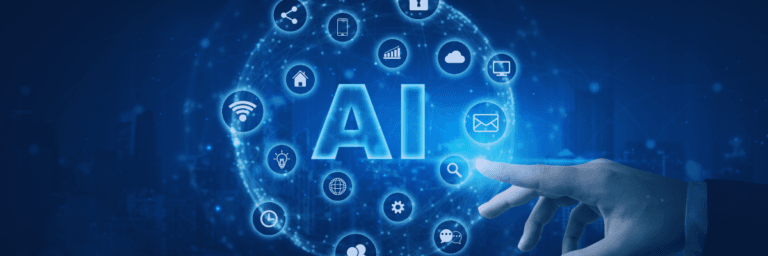When you deploy autonomous AI agents, you’re giving systems access to personal information. People need to know what data gets collected, how it gets used, and who controls it. Without clear consent and transparency, you’re crossing ethical lines.
These agents can track behavior patterns, make inferences about sensitive details, and store information indefinitely. Users deserve the right to opt out, delete their data, and understand the full scope of monitoring.
What Are Autonomous AI Agents?
Autonomous AI agents are systems that can perceive, decide, and act in real-time without constant human control. They combine machine learning, natural language understanding, and reasoning abilities to perform tasks, make decisions, and adapt to new situations.
Examples include:
- Self-driving vehicles deciding when to brake or overtake.
- AI trading systems managing portfolios.
- Virtual assistants executing multi-step tasks like booking meetings or writing reports.
These systems are powerful — but power comes with responsibility.
Key Ethical Considerations in Autonomous AI
1. Accountability and Responsibility
When an AI agent makes a harmful or wrong decision, who takes the blame — the developer, the deployer, or the algorithm itself?
This “accountability gap” is one of the biggest ethical challenges.
For example, in a self-driving car crash, it’s difficult to determine whether the fault lies with the code, the training data, or the human who trusted the system.
To fix this, companies must clearly define liability frameworks and maintain audit trails for every major decision the AI makes.
2. Bias and Fairness
Autonomous systems learn from human-generated data, which can contain hidden biases.
If not addressed, these biases can lead to unfair outcomes — such as discrimination in hiring, lending, or policing.
Ethical deployment requires:
- Bias testing before and after deployment.
- Transparent data sources and documentation.
- Regular audits to monitor real-world impact.
Fairness must be designed, not assumed.
3. Privacy and Data Use
Autonomous agents often rely on large amounts of user data to function.
That raises questions about how much data they collect, how it’s stored, and who can access it.
Key practices for responsible design:
- Minimize data collection to what’s truly needed.
- Encrypt sensitive information.
- Offer users clear consent and control.
In short, autonomy should not mean surveillance.
4. Transparency and Explainability
For people to trust AI agents, they must be able to understand why the system made a decision.
Opaque or “black-box” systems make it hard to detect bias or errors.
Ethical AI should provide:
- Explainable outputs (simple reasons behind decisions).
- Logs and documentation of actions taken.
- User-friendly explanations, not just technical ones.
Transparency builds trust and helps regulators hold systems accountable.
5. Human Oversight and Control
Even the smartest AI should not operate without human supervision.
Autonomous doesn’t mean uncontrolled.
Best practice includes:
- Human-in-the-loop: Humans can override or stop AI actions.
- Approval gates: Required for critical operations.
- Emergency stop or “kill switches.”
These controls prevent AI from acting outside intended limits.
6. Social and Economic Impact
Autonomous AI systems can change job structures, shift decision-making power, and widen inequalities if left unchecked.
Organizations must consider:
- How automation affects workers and communities.
- Whether to invest in retraining programs.
- How to use AI to support — not replace — human talent.
How Kanerika’s AI Agents Support Responsible Digital Transformation
At Kanerika, we design AI agents that help enterprises apply autonomous intelligence to real-world operations. Our solutions focus on practical, outcome-driven automation — not abstract experiments. From automating inventory tracking to interpreting documents or analyzing live data streams, our AI agents are built to integrate naturally into business workflows.
With experience across industries like manufacturing, retail, finance, and healthcare, we ensure that AI adoption remains transparent, explainable, and beneficial to human teams. Every system is developed with reliability, security, and accountability in mind — the core principles behind any sustainable AI deployment.
As a Microsoft Solutions Partner for Data and AI, Kanerika leverages Azure, Power BI, and Microsoft Fabric to create scalable platforms that connect data, reasoning, and automation. These systems reduce manual effort, deliver real-time insights, and support better decision-making across departments.
Our Specialized AI Agents
Mike – Checks documents for mathematical accuracy and format consistency.
DokGPT – Retrieves information from documents through natural language queries.
Jennifer – Manages calls, scheduling, and repetitive interactions.
Karl – Analyzes datasets, generates reports, and highlights key business trends.
Alan – Summarizes complex legal contracts into clear, actionable insights.
Susan – Redacts sensitive or personal data to maintain GDPR/HIPAA compliance.
FAQs
Who is responsible if an autonomous AI agent makes a mistake?
Responsibility depends on how the system is designed and deployed. Usually, accountability lies with the organization or developers managing the AI.
How can bias be reduced in autonomous AI systems?
Bias can never be fully eliminated, but it can be minimized through several steps:
- Use diverse and representative training data.
- Audit models regularly for unequal outcomes.
- Include human review in sensitive decisions.
- Continuously monitor performance after deployment.
These steps ensure that AI decisions remain as fair and balanced as possible.
How can organizations ensure privacy when using autonomous AI?
Organizations should follow a “privacy by design” approach — collecting only the data that’s truly necessary, anonymizing personal information, and encrypting stored data. Compliance with standards such as GDPR and HIPAA ensures that personal data is handled responsibly. AI systems must also include features for user consent and data access transparency.
Are there laws governing ethical AI use?
Yes. Several regions are creating or enforcing AI-specific regulations. For example, the EU AI Act focuses on risk assessment, transparency, and accountability. The U.S. and other countries are drafting frameworks for responsible AI governance. These regulations aim to protect users from harm while encouraging safe innovation.
What’s the biggest ethical risk of autonomous AI today?
The most pressing risk is the lack of clear accountability. As AI agents become more autonomous, tracing responsibility for errors or harm becomes harder. This gap can lead to unregulated or unsafe deployment. Addressing it requires clear rules for ownership, human supervision, and system explainability.










